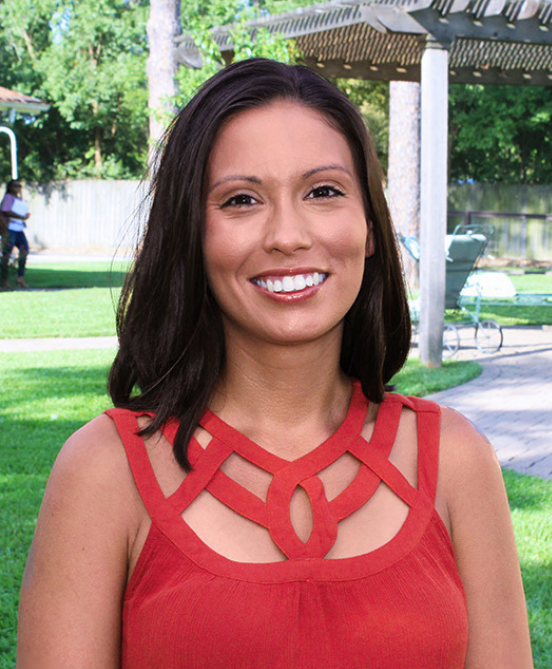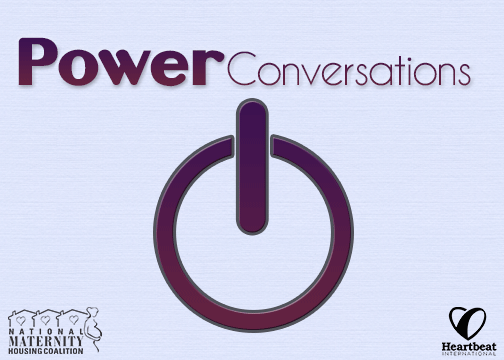Displaying items by tag: nmhc
Question from the reader: Is there a way to make sure that there will always be even one resident in the house? Sometimes a month goes by and my house is empty. Am I doing something wrong?
 There has been quite a bit of buzz around this topic since the beginning of the COVID-19 Pandemic. Ministries across the country have found themselves on vacillating ends of the spectrum between empty and full houses with burgeoning waiting lists. So why the variance?
There has been quite a bit of buzz around this topic since the beginning of the COVID-19 Pandemic. Ministries across the country have found themselves on vacillating ends of the spectrum between empty and full houses with burgeoning waiting lists. So why the variance?
I recently spoke with homes from different regions of the country, each with varied programming models, ministry models, and eligibility criteria. I found that the homes with low occupancy rates (For the purposes of this writing, “low” will be less than 25%) repeatedly described their experiences of receiving calls from women in the community inquiring about their home or even interviewing some women, however, these women did not meet the criteria to be eligible to move into the home. Reasons ranged from past or current drug use, criminal record, previous pregnancies, previous children removed from care, children currently in care, or perhaps a generally poor attitude. Needless to say, this can be an exhausting daily merry-go-round for ministries.
Question from the reader: Donors and grantors are asking me to provide metrics on the impact and success of our housing ministry. How do I measure this and where do I start?
Many of us serving in maternity housing ministries have found ourselves in similar shoes! The lives of our residents can be complicated and the definition of “success” is admittedly subjective. Using a tool such as the Evaluation Matrix for Maternity Homes, which you will find cost-free in the Heartbeat affiliation tools for maternity homes, can help to provide an objective and quantifiable measure of progress in the lives of residents.
It is important to provide data on a few specific outcomes that are directly related to your mission statement, typically about 3-5 outcomes. Our recommendation is to internally measure a wide variety of indicators (about 10-15) and externally present the selected few. This will help guide the public in awareness of specifically how your mission statement is affecting the community as well as keep you equipped with relevant data about many areas of a resident’s progress to have on hand for conversations with donors.
Question from the reader: Our search for staff has been difficult. We’ve come up empty after months of looking and getting desperate. What do we do?
Great topic of discussion here. First, I’ll share that you are not alone. This is the most common place of exasperation among maternity housing ministries that I hear of on a regular basis! Several factors may play into this, chief among them being our high rate of unemployment nationally at this time. Most communities are facing labor shortages with ministries not being any different.
So, what to do to keep the ship afloat during the storm? While we have a shortage in labor, we ironically do not have a shortage of unpaid labor in most communities! My recommendation is to make the most of this season to build a first-class volunteer program in your ministry. A thriving volunteer program can bolster every aspect of your ministry from recruitment, evangelism, programmatic operations, and especially development/fundraising.
The NMHC is growing with YOU in mind!
by Valerie Humes, Director of the NMHC
It is a busy season of vision-casting and building, building, building here in the National Maternity Housing Coalition. The NMHC exists to support your housing ministry in fulfilling the mission the Lord has given you with excellence. We are turning up the heat in our zeal to journey with you all year long. The Holy Spirit is calling a greater number of believers to provide homes for women in unplanned pregnancies all over the nation – all over the globe! We’ve been astounded as we’ve watched the spiritual explosion of hearts stirred with a desire to preach the gospel to the nations by opening their homes. We are witnessing the time-tested union of hospitality and evangelism shake communities.
So, what does this mean for you, our fellow Coalition Members? We are building feverishly with you in mind. Over the course of the next year, you can expect to find increased opportunities to directly ask questions and receive answers for your housing ministry, receive free content and helpful tools within the housing specialty all year long, and have a voice which directly shapes our annual in-person training opportunities.
Meet me in a conversation with Mary Peterson on Pregnancy Help Podcast to hear a little bit more about our vision for the maternity housing community! (Click here)
We want to hear from you!
Keep an eye out for fresh content from the NMHC here:
Looking Forward by Looking Back
by Mary Peterson, Housing Specialist

Early in the three-day meeting, the question was posed: "Has the maternity housing movement, as a whole, strayed from its core mission?" Gulp. Big question.
All present were quick to defend the good work that currently happens in the approximately 400 maternity homes across the United States. There is no doubt of the important role that maternity homes play within the pregnancy help movement. But the question lingered.
Historically, maternity homes developed to support women through an adoption plan, first as large institutional programs often staffed by Catholic religious orders. Trying to protect the confidentiality of the women coming to the program, these early homes were often shrouded in secrecy and silence. Many of the reforms in adoption began from the heartache of women who experienced adoption not as an empowering choice, but rather as a decision they felt was forced upon them without sensitive acknowledgment of the pain involved.
From these roots, as movement toward open adoptions began, the host or shepherding home model developed as families began welcoming a pregnant woman into their homes. And, in recent history, as the needs and challenging circumstances of the pregnant women in need of housing support have increased, a variety of models have developed that allow for increased expertise in supporting women in situations related to addiction, violence, abuse, and trauma. As this progression has happened, the number of adoptions in maternity homes has dramatically decreased.
The 10 housing leaders who serve as the Leadership Council for the National Maternity Housing Coalition (NMHC), a joint-affiliate of Heartbeat International, gathered to think deeply about why this has happened and how maternity homes might restore their heritage as a safe refuge for women considering adoption. It is not as if maternity homes are not supportive of adoption.
Homes, generally, are delighted to walk with a women pursuing an adoption plan. And, several homes, especially those with over 30 years of experience, have deep organizational ties to adoption agencies. Even so, the NMHC Leadership Council collectively wondered, "Can we be doing more? Why do we continue to see declining numbers? Is there something that we, as maternity homes, can do better?"
Shawn Stevenson, the Executive Director of Life Services in Spokane, Wash., raised the question of an organization's "null curriculum". Based on his training in the education field, Shawn asked, "It makes me wonder about our programs. Specifically, What are we teaching by what we are not teaching?"
He continued, "Is there something in the way that we handle adoption that inadvertently communicates a bias we don't intend?" The statement raised a great conversation about the strategies used by homes to introduce adoption.
Through discussion, five major strategies surfaced. All are currently being used by homes to incorporate an adoption message:
- A maternity home and adoption agency have close organizational alignment (one org, deeply related orgs, etc.) in which women are interacting deeply with both organizations.
- Maternity homes bring in outside experts to present info on adoption during group seminars or one-on-one meetings.
- Maternity homes use a curriculum (i.e. Baby & Me, independently developed) within the house to present adoption information.
- Maternity homes address misconceptions moms have (e.g. foster care is not the same as adoption) directly via some other educational opportunity or awareness campaign.
- Maternity homes actively develop policies and programming for support of birth moms (i.e. recruit birth mothers as volunteers, have birth mom support groups, have adoption awareness in policies, etc.) Additionally, some homes offer alternative post-birth housing (i.e. a host home) for a mom to live in rather than returning to home after giving birth.
While these strategies are a solid starting point, the challenge was raised on how to re-think and re-craft the strategies used to present the beauty of adoption in new and creative ways within the home environment.
Summing up the conversation, Jeannine Floores, a birth mom and adoptive mom who leads Breath of Life in Austin, Texas spoke of the need to create an adoption-positive culture throughout the organization.
"Moms need to know that you aren't focused on WHAT decision she makes," she said, "only that she makes an informed, prayerful, thought-out decision."
The National Maternity Housing Coalition took this message to heart and renewed its commitment to pregnancy decision making as the place of excellence for maternity housing programs.
"It is this decision-making process that makes maternity homes different than any other housing programs for women," Callie Neff of House of His Creation asserted, "In addition to all the other ways that maternity homes support women, we must support her in thinking about her options around how her child will be parented."
A re-examination of our past as a maternity housing movement allowed us to remember our role in championing the adoption message. As such, the NMHC is inviting homes to re-engage the adoption message in a new way this year and keep decision-making during pregnancy at the heart of their mission. You can anticipate dynamic trainings and conversations on how to achieve that goal within the upcoming year.
If you would like to contribute your thoughts on this topic, please don't hesitate to reach out to Mary Peterson, NMHC, Facilitator, at This email address is being protected from spambots. You need JavaScript enabled to view it..
Power Conversations
Heartbeat International is partnering with the National Maternity Housing Coalition for a seventh round of highly interactive peer discussions entitled "Power Conversations." Short and sweet, these 45-min conversations are perfect for program staff, house directors, and maternity housing leaders at all stages of development and experience.
The next round of Power Conversations begins May 25, 2017 covering a wide range of topics essential for success in your Maternity home.
Summer Power Conversation Schedule:
- May 25: Fires and Falls and Floods: Oh, My! Insurance Policies and Claims
- June 1: Welcoming the Sojourner: Immigration Issues and Language Barriers
- June 8: When the Helpers are Hurting: Staff Triggers
- June 15: Motivational Interviewing Skills: Asking So She Will Answer
- June 22: Having a Healthy Home: Prevention and Policies
*All calls begin at 12 PM EST
Click Here to Register for a Single Call for $9.95 Each |
Click Here to Register for all Five Calls at a $5.00 Savings! |
Power Up This Summer With Heartbeat, NMHC
 Thinking of conserving power this summer?
Thinking of conserving power this summer?
Well maybe it’s time to think again.
This summer, Heartbeat International is partnering with the National Maternity Housing Coalition to pilot six highly interactive strategy sessions we like to call “Power Conversations.”
Short, sweet, and packing a punch, these 30-minute conversations are a perfect environment for maternity housing leaders at all stages of development and experience.
Here’s what to expect from Power Conversations this summer:
- July 10: Smooth Departures
- July 17: Intake Methods
- July 24: Outbreak Prevention
- July 31: Difficult Departures
- Aug 7: Transportation Norms
- Aug 14: Chore Systems
All sessions start at 2 p.m. (Eastern Standard Time)
Call-in Number: (559) 726-1300
Participant Access Code: 705126
Baby Daddies and the Treasure Hunt
by Mary Peterson, Housing Specialist
 Somewhere along the line several years ago, moms started using the title “Baby Daddy” to refer to the man they had been involved with when they became pregnant.
Somewhere along the line several years ago, moms started using the title “Baby Daddy” to refer to the man they had been involved with when they became pregnant.
“The ‘baby daddy’ went with me to doctor today.”
“Him? Nah, we’re not dating—he’s the ‘baby daddy.’”
When it was still a new term, I remember hearing it a few times. Soon after, I saw it used in a pop magazine and realized that the term wasn’t just a passing phase. A sign of our times, the phrase “baby daddy” has come to be commonly understood as referring to a specific situation and calling to mind attributes of a specific kind of man.
It is this man who is often connected to the women of our homes.
More and more, I hear pregnancy help organizations reflect on how to better engage men. For maternity homes, this question is framed as, “How do we help ‘baby daddies’ grow into fathers?”
In the maternity home setting, this can raise the question, “If they are choosing to parent, how do we help single mothers—fatherless families—to invite the right type of men into their lives and raise children in the context of authentic masculinity?”
It’s a difficult tension—wanting to honor the role a man plays as a father and simultaneously, wishing a new mom would finally sever a destructive attachment to a man who is just using her, abusive, manipulative, or in and out of jail.
Hope Mansion in Cedar Hill, Texas, led by Angie Hammond, has developed an interesting program to address this tension.
The program, still under development, uses communication with the women as the leverage point. In order to be able to spend time with the mother residing in the maternity home, the man must walk through a variety of steps in a process they refer to as a “Treasure Hunt.”
One of the first steps is to require a formal letter from the “Baby Daddy,” in which he must explain his intentions regarding the resident in the Home and the baby. Once the Home receives the letter, he is provided with the workbook, “The Me I See,” from Loving and Caring. Next, he makes a request to meet with the House Dad, giving the opportunity to engage in a deliberate conversation.
Calling upon his masculine drive to take action, the intent is for the man to realize the mother of his child truly is a treasure—a woman worthy of his sacrifice. If he fails to take the simple steps required, then he is not allowed contact, and the house parents encourage the woman to think deeply about what it means that he was unwilling to make such small gestures in order to stay in her life.
“We are pleased by the level of conversation that has opened up,” Angie says. “The Treasure Hunt puts the initiative and the consequence into the hands of the man. And thus, provides an opportunity for real growth.”
Has your home, like Hope Mansion, discovered effective strategies for engaging men and teaching fatherhood? We would love to hear (and share!) more.
Please don’t hesitate to contact me at This email address is being protected from spambots. You need JavaScript enabled to view it. or post to the National Maternity Housing Coalition Facebook page. Who knows, maybe this is the beginning of a longer conversation we can have via conference call or through the Heartbeat Academy. Let’s learn from one another!
For more information on Hope Mansion, visit: https://www.hopemansion.com.
A home for the Housing Coalition

About the Maternity Housing Coalition
The Maternity Housing Coalition exists to inspire excellence among maternity housing providers and articulate a collective voice to advance the culture of life and the Gospel of Jesus Christ. We provide training and tools, facilitate exchanges of knowledge and experiences, and foster fellowship among members.
The life-affirming effort of aiding women, children, and families in and around pregnancy necessarily includes promoting and providing housing resources and extended care. Strong housing services are the result of committed individuals and organizations striving for excellence in all areas.
We value all housing efforts that seek to overcome the challenge of homelessness. We know that there are many valuable organizations and heroic individuals who give tirelessly to provide housing. For a variety of reasons, we have limited our current coalition to life-affirming maternity homes with a Christ-centered leadership and/or service model.
Connect
The MHC provides opportunities for affiliated maternity homes to connect with other maternity homes and life-affirming organizations nationwide. This includes our exclusive Maternity Housing Coalition Facebook group, networking events, as well as access to all affiliate benefits of Heartbeat International.
The MHC provides a Housing Locator Tool so your home can seamlessly be found by clients and advocates in the first-of-its-kind accuracy and speed. The Housing Locator features quick and easy filter options to search for homes by intake criteria, client needs as well as the ability to submit an initial inquiry application for residency right on the same webpage.
Learn
The MHC provides its members with access to ongoing maternity housing-specific materials and publications including monthly housing-specific webinars, relevant podcasts, and our e-newsletter, Heart & Home, with the most up-to-date information about the movement and current practices to support homes of every approach and housing model.
Grow
As a part of Heartbeat International, the MHC provides opportunities all year long for our affiliates to grow in their faith, profession, and relationships. Staff and volunteers of maternity homes are invited to attend our annual Conference with a maternity housing track as well as our summer Pregnancy Help Institute, a small group learning environment for in-depth training. Additionally, our housing affiliates have access to a monthly cost-free consultation with a housing specialist to review any topic of choice related to maternity housing.
Starting a maternity home? Click here for tips to get started!
Our Beginnings
Over the past few years, leaders of maternity homes have been strategizing how to best unify maternity homes across the country, to speak collectively, support fledging homes, learn from one another, and help every maternity home to be more successful in facilitating the transformation we hope to see in the lives of the women we serve.
The results of this ongoing discussion were the formulation of the Maternity Housing Coalition (MHC), which is now reaching out to more than 450 U.S. maternity homes to provide support and resources for the unique work of providing housing to homeless pregnant women. Heartbeat International has been a great partner every step of the way. With its extensive history of supporting life-affirming organizations, Heartbeat has given the newly created MHC a home.
In partnering with Heartbeat, the MHC is tapping into a wealth of resources, including Heartbeat’s Annual Conference, the ability to host webinars through the Heartbeat Academy, and the opportunity to have more maternity homes take advantage of Heartbeat’s existing resources, such as the Sexual Integrity™ Program, The LOVE Approach™, and Healing the Effects of Abortion-Related Trauma (H.E.A.R.T Manual™).
Heartbeat unites Christ-centered ministries from across denominational dividing lines and has a deep cultural sensitivity shown by its 2,800 affiliates from across the country and around the globe.
The Coalition is blessed to have such a loving place to call home!
Maternity homes are a key response to the questions: “What about that child?” “What about that mother?” “What are you doing to help them?”
Housing ministries provide the pregnancy help movement with a valuable response to these concerns.
By their nature, maternity homes meet a wide variety of needs, providing genuine choice and practical aid to mothers and mothers-to-be. Some of these precious women need help meeting immediate needs such as homelessness, while others need help formulating a long-term plan for success.
Aren’t we blessed to be smack dab in the middle of this wonderfully challenging and wonderfully beautiful work?!
What's love got to do with it?

Tina Turner got it wrong.
When answering with the question, "what's love got to do with it?" she called it “a second-hand emotion." No way. In the Christian walk, love is both the ultimate goal (being unified in Love with God) and the way to get there (loving God and our neighbor).
In our homes, the demands of love are a constant invitation to show up, speak up, and lift up. Here’s a few ideas for how you live and love incarnationally within the work of maternity homes—loving tough, yet unconditionally.
Love as a Invitation to Perfection (Tough Love)
- Notice the small movements of growth in others. Don't overlook even the seemingly smallest advances in the lives around us. Often progress is very subtle!
- Ground yourself in the dignity of every person. It’s especially important to remember that when dignity isn't being shown!
- Foster willingness to hear feedback and admit your mistakes. Be an example of openness even as you pursue growth in holiness. You’re not perfect, and you’re not expected to be, so live in the freedom that comes with admissions and apologies.
- When you have to correct, speak out of a calm, reflective place. Refuse to speak from an angry, reactive place. When you do correct, ask God to purify your motives, so that your correction is truly correction, not frustration masquerading.
- Recognize the power of timing. Are you and the other person able to have a meaningful conversation right now? Or, are other circumstances (anger, hunger, loneliness, fatigue) affecting the exchange?
Love that Sees through Brokenness (Unconditional Love)
- Grow in your ability to give and receive forgiveness. Let mercy gush out of you.
- Love your imperfections—they are part of your humanity. But, don't coddle them. Instead, always be stretching past them. Allow others to have imperfections as well. They’ll have imperfections either way, so better get used to them!
- In a maternity home, the mothers need to be able to relax and be themselves. Yes, there are battles to fight. But, choose each battle wisely. Your goal with each mom is to create an environment where they can open hearts and breathe deeply.
- Because each person has a different set of challenges, we’re stronger operating as a team or community. Create an environment where each individual functions out of her strengths, and where the community protects each other’s area of weakness.
- Love is a moving target—sometimes it requires giving, other times receiving. Sometimes it requires action, other times inaction. Stay attuned!
There is a spiritual insight that suffering expands one's capacity to love. The women who join our homes have often known great suffering—some due to their own decisions and some due to the horrific decisions of others.
We have the noble challenge of trying to help each mother understand that the heartache of their lives can produce a bedrock strength and a beautiful ability to love deeply. Starting with themselves and their children.
As we exercise compassion—literally, suffering with—the moms, we too are being perfected in love!
by Mary Peterson, Housing Consultant




